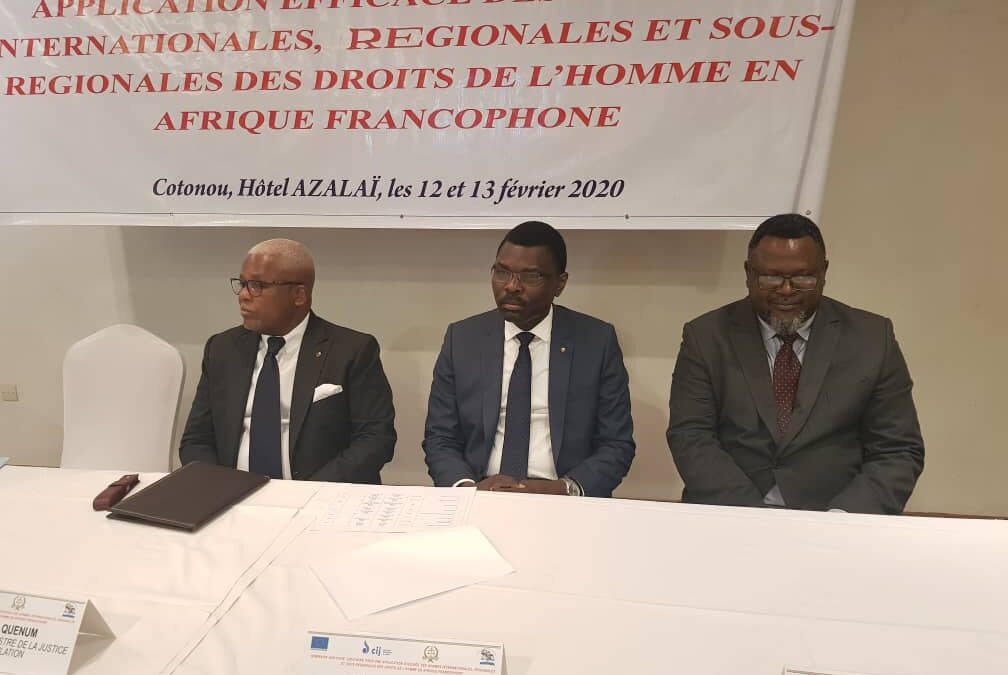
Feb 13, 2020 | News
From 12-13 February, the ICJ, in collaboration with the Supreme Court of the Republic of Benin and the African Association of the Francophone Higher Jurisdictions, hosted regional judicial dialogue and training for effective implementation of human rights in francophone Africa in Cotonou.
The President of the Constitutional Court of Benin, Justice Joseph Duogbenou, the Vice President of the ECOWAS Community Court of Justice, Justice Ouattara Gberi Be and the President of the High Court of Benin, Lady Justice Marie Cecile de Dravo Zinzindohoue were among the participants.
Judges and other jurists representing the Supreme Courts and Constitutional Courts of Benin, Burkina Faso Cameroon, DR Congo, Gabon, Guinea, Côte d’Ivoire, Mali, Niger, Senegal and Togo also participated.
President Patrice Talon, who was represented by the Minister of Justice and the Legislature, M. Maxime Ouenum, opening the ceremony, noted that ‘fundamental rights and freedoms are binding on legislative, executive and judicial authorities because of the Constitutional, Conventional and National protection they enjoy’. They therefore ‘create obligations on states and on those who act on behalf of states, they cannot be ignored, denied or discarded’.
President of the Supreme Court of Benin, M. Ousmane Batoko emphasized the need to strengthen the capacity of judges for a more effective application of international human rights law in domestic adjudication. According to Justice Batoko, ‘The judge is at the very heart of the day to day construction and perpetuation of international human rights law.
‘’The protection of human rights goes beyond international and national legislation, and requires active protection by judges in the court rooms across Africa‘‘ said Arnold Tsunga, ICJ’s Africa Regional Director. He expressed hope that the dialogue would help to ensure that African peoples enjoy their human rights in totality. “The architecture for the protection of human rights can only be effective when national judges are equipped to play the very vital role that they have as the first layer of protection available to victims of human rights violations,“ Tsunga added.
At the end of the two-day programme which included lectures and judicial conversations, participants adopted a communique in which they affirmed their continued commitment to the promotion and protection of human rights in Africa expressing a desire for such colloquia to be held more frequently in order to build the capacity of the judiciaries in West Africa.
Contact
Arnold Tsunga, ICJ Regional Director for Africa, t: +27 716405926 or +263 777 283 249: e: arnold.tsunga@icj.org
Solomon Ebobrah, Senior Legal Adviser (ARP), t: +234 803 492 7549, e: Solomon.ebobrah@icj.org
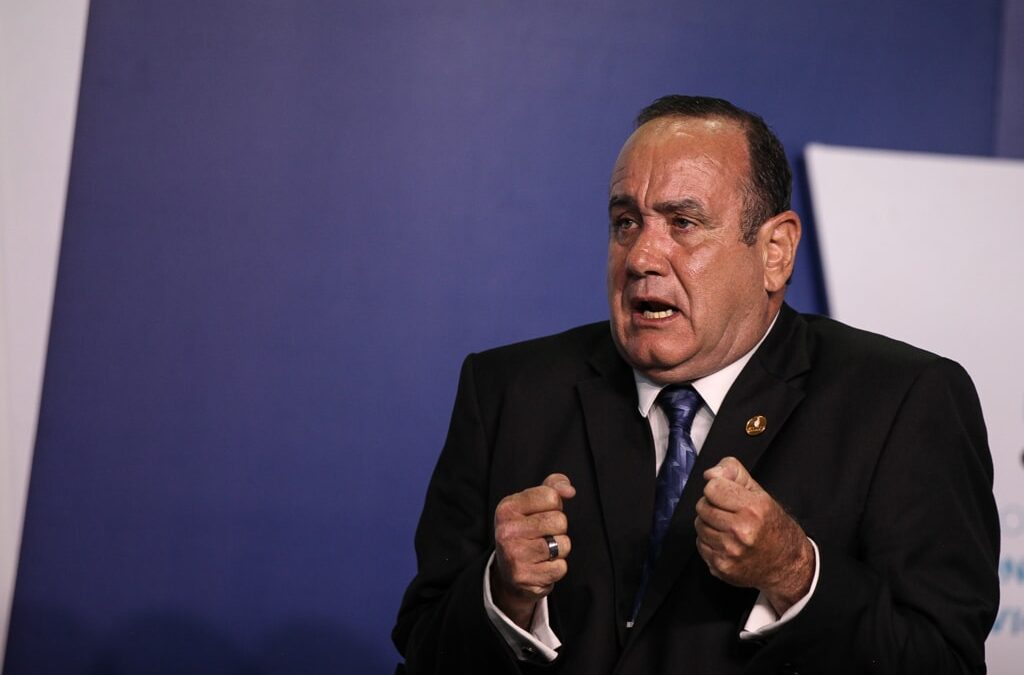
Feb 13, 2020 | Artículos, Incidencia, Noticias
La CIJ pide al Presidente Giammattei que vete la ley que contiene las reformas al Decreto del Congreso de la República 4-2020 que regula el funcionamiento de las organizaciones no gubernamentales.
Desde el año 2019, el Congreso de la República viene tratando de implementar una agenda legislativa “regresiva”, que socava el respeto de los derechos humanos.
En este caso, se trata de una ley que afecta el derecho constitucional de Libertad de Asociación, así como otros derechos que la CIJ en Centro América ha desarrollado en la carta correspondiente.
Además, el Congreso ha intentado reformar la Ley relacionada con el Programa Nacional de Resarcimiento para incluir la posibilidad de otorgar amnistía a quienes cometieron crímenes graves.
Por otro lado, la Ley relativa a la Familia, de llegar a aprobarse afectaría los derechos de la comunidad LGBTI en Guatemala.
También ha intentado aprobar reformas a la Ley de Orden Público, sin tomar en cuenta los principios de la Seguridad Democrática.
Estas son sólo algunas de las leyes, que forman parte de la agenda legislativa regresiva en materia de derechos humanos.
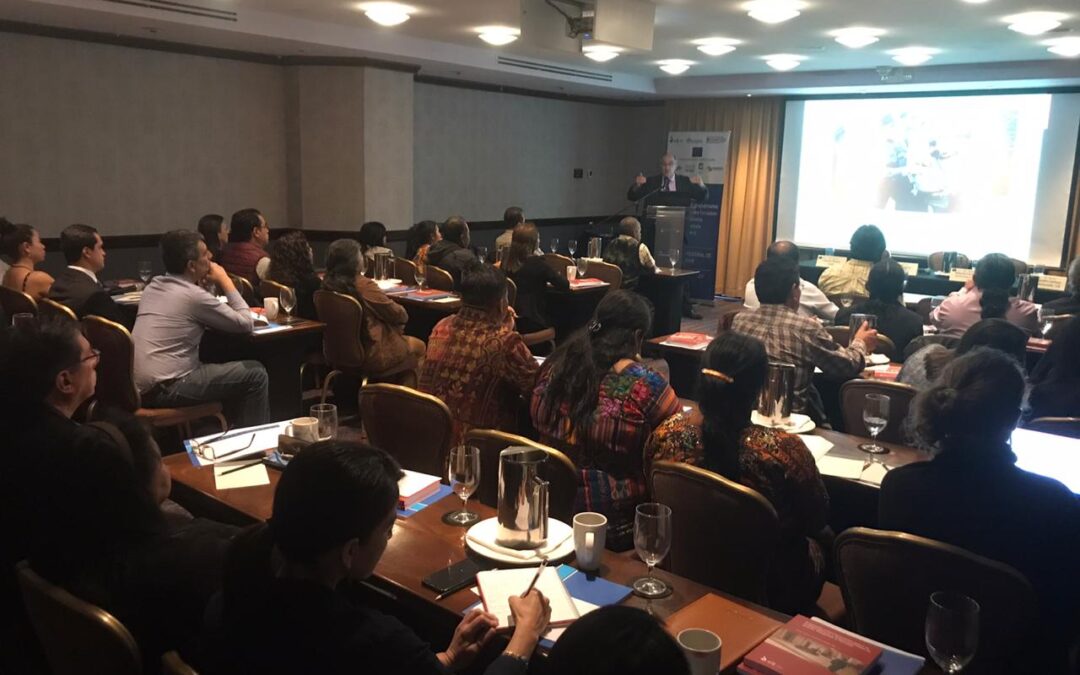
Feb 13, 2020 | News
The ICJ convened two workshops in Guatemala City from 11 to 13 February for more than 30 lawyers and more than 30 representatives of victims’ organizations on the international law and standards that apply to the investigation of unlawful death and enforced disappearances.
The workshops were conducted as part of the project under the ICJ’s Global Accountability Initiative entitled, Promoting justice for extrajudicial killings and enforced disappearances in Colombia, Guatemala and Peru, and supported by the EU European Instrument for Democracy and Human Rights (EIDHR). The project promotes accountability of perpetrators and access to effective remedies and reparation for victims and their families in cases of extrajudicial killings and enforced disappearances.
The workshop for lawyers was inaugurated by the President of the Board of Lawyers of Guatemala, Ovidio Orellana. The workshop with representatives of victims organizations was inaugurated by the Chief of Cooperation of the European Union Alberto Cortezón.
Participants in the workshops emphasized that the Guatemalan public authorities must respect and effectively impolement the the revised Minnesota Protocol on the Investigation of Potentially Unlawful Death, and that there was a need to reinforce advocacy strategies for the respect of the Protocol by the Guatemalan Human Rights Institutions.
The Presidential Commission on Human Rights (COPREDEH) and the Ombudsman´s Office participated during the workshop with victims’ organizations. They committed themselves to take the necessary actions to incorporate into their work the principles and content of the Minnesota Protocol, as a complementary tool to other conventions and binding law.
Contacts:
Ramón Cadena, Regional Director of ICJ’s Central America Office, email: ramon.cadena@icj.org
Kingsley Abbott, Senior Legal Adviser & Coordinator of the ICJ’s Global Accountability Initiative, email: kingsley.abbott@icj.org
Carolina Villadiego Burbano, ICJ Legal and Policy Adviser, Latin America, and Regional Coordinator of the Project, email: carolina.villadiego@icj.org
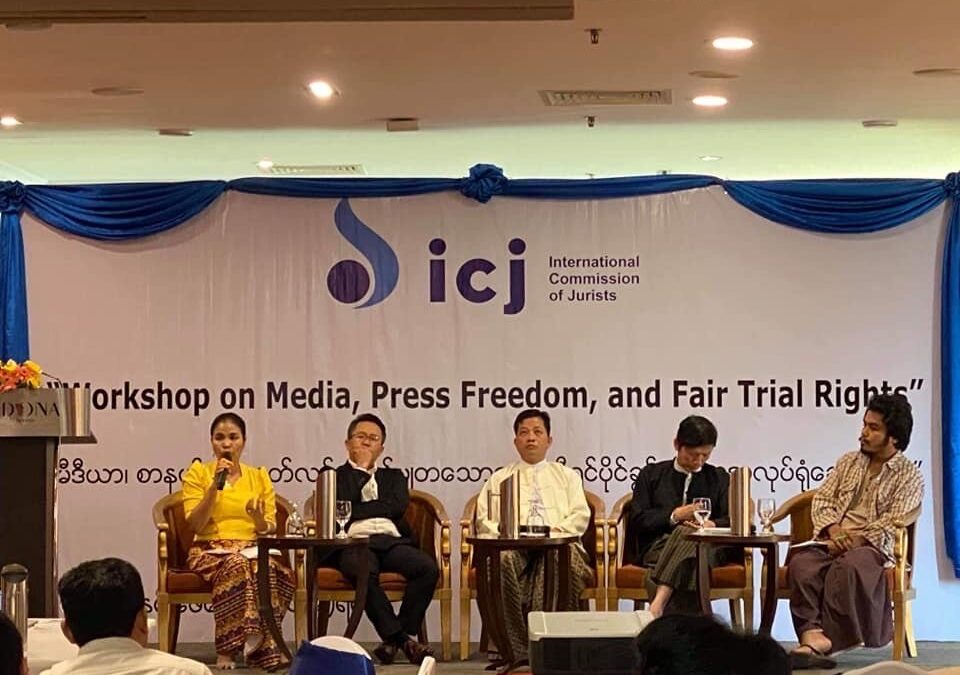
Feb 10, 2020 | Advocacy, News
The ICJ conducted a workshop for journalists on fair trial rights and due process on 9 February 2020 in Yangon to help them respond to situations of arrest and prosecution
Some 25 journalists across Myanmar participated in the event, including media representatives from ethnic communities in Shan and Kachin states. Members of nationwide journalism networks, the Myanmar Media Lawyers Network, and the Myanmar Press Council also participated.
The workshop apprised journalists of the guarantees and rights of persons arrested and prosecuted under international human rights law, and the limited protections available under Myanmar law in comparison. It provided a space for participants to collectively identify gaps in journalistic protection. It also intended to foster greater collaboration between journalists and lawyers in safeguarding a free press in Myanmar.
The workshop opened with remarks from Linda van der Horst, head of the political section of the Embassy of the Kingdom of the Netherlands in Myanmar, and Ross Clarke, Team Leader at the ICJ. Both stressed the role of the media in ensuring a robust democracy that adheres to the rule of law, especially in light of the upcoming 2020 national elections. Linda Van der Horst noted that the workshop could also help journalists more deeply understand legal concepts useful for their reporting.
ICJ Associate Legal Adviser Jenny Domino addressed the rights of arrested persons and fair trial guarantees in criminal proceedings under international law. She highlighted the unlawfulness of arresting a journalist as punishment for his work in ensuring that individuals receive information in a free and democratic society. In a comparative context, she discussed the various writs available under Philippine law to protect journalists from unlawful arrests, extralegal killings and enforced disappearances.
ICJ Legal Adviser Hnin Win Aung then discussed Myanmar criminal procedure and the pre-trial rights of criminal defendants. She introduced the writ of habeas corpus remedy under the 2014 Law on the Application for Writs for contesting arbitrary detention. She explained the limitations of this remedy and the practical challenges of litigating in the Myanmar courts.
The presentations were followed by a panel discussion on fair trial rights challenges in Myanmar. The panel was composed of U Myint Kyaw of the Myanmar Press Council, U Brang Mai of Myitkyina Journal, U Myo Aung of Dawei Watch and U Than Zaw Aung of Myanmar Media Lawyers’ Network. The speakers agreed that there is no equality before the law and pushed for greater advocacy on judicial independence and impartiality.
To conclude the workshop, the participants shared their thoughts on how lawyers and the ICJ could help local media moving forward. The participants suggested a human rights analysis of how fair trial rights are undermined in practice by various actors in Myanmar’s criminal justice system. They also expressed their interest to work more closely with lawyers towards better reporting of current events.
The workshop marks the ICJ’s effort to support journalists and empower persons from minority groups towards greater participation in Myanmar’s democratic transition.
Contact
Jenny Domino, ICJ Associate Legal Adviser, e: jenny.domino(a)icj.org
Hnin Win Aung, ICJ Legal Adviser, e: hninwin.aung(a)icj.org
Related material
Strategic Litigation Handbook for Myanmar
Briefing Paper, Citizenship Law and Human Rights in Myanmar
Event, ICJ hosts workshop with civil society on freedom of religion or belief
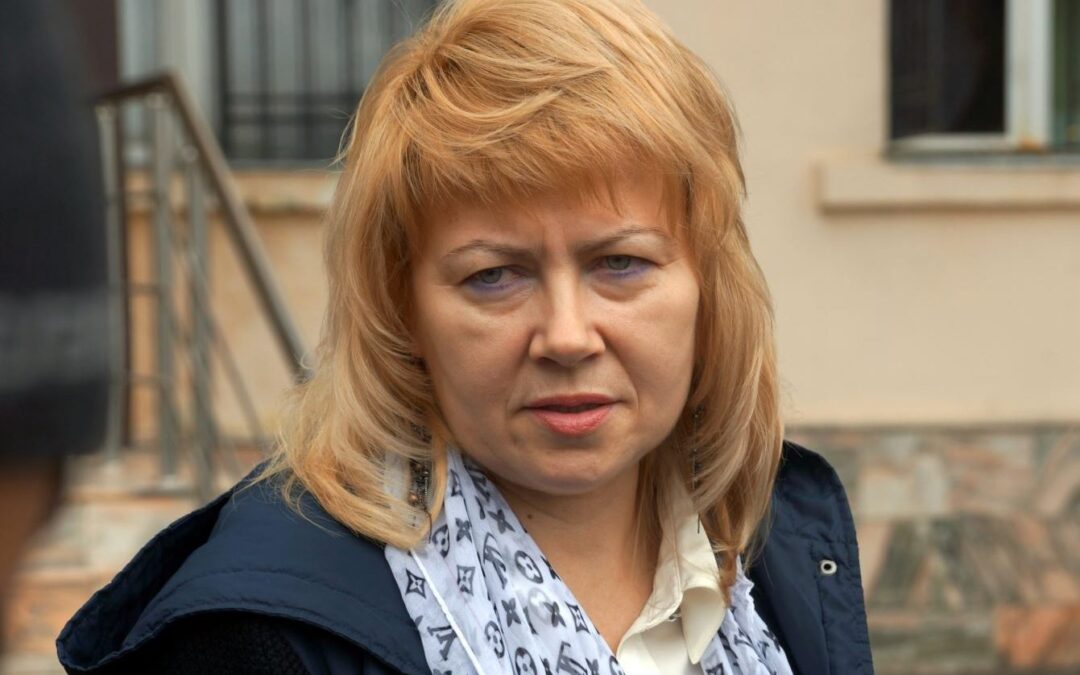
Feb 7, 2020 | News
The ICJ expresses concern at today’s physical assault of a lawyer and a journalist, who arrived in Grozny to take part in the trial of blogger Islam Nukhanov.
The ICJ called on the authorities of the Russian Federation and its Chechen local authorities to investigate the attack and ensure that those responsible be brought to justice.
On 6 February, at around 22.00 lawyer Marina Dubrovina (photo) and Yelena Milashina, a journalist of Novaya Gazeta, a Russian newspaper, were beaten up by a group of young women in the lobby of the “Kontinent” Hotel in Grozny, Chechnya.
Both women suffered injuries to the face and body. Dubrovina and Milashina had come to Grozny to observe the trial of Islam Nukhanov, a blogger from the town of Kogalzm in the Tumen Oblast of the Russian Federation, charged with possession of a weapon, who has been detained by Chechen police since November 2019 after he posted a video on YouTube, with footage allegedly taken near the residence of the head of the Chechen Republic, Ramzan Kadyrov.
On 7 February, neither Dubrovina nor Milashina was admitted to the courtroom where Nukhanov was tried, due to the public and the media reportedly being excluded from the hearing.
The ICJ urges the federal and local authorities of the Russian Federation, to investigate the attack against Dubrovina and Milashina in a prompt and independent manner.
Measures should be taken to ensure that lawyers, especially when exercising their professional duties, are protected against such attacks.
Furthermore, Islam Nukhanov’s trial should be held in public, unless and until the authorities demonstrate that the circumstances of his trial require that the public and the media be excluded from it, consistent with relevant international fair trial standards.
Background
Islam Nukhanov, 27, is a blogger of Chechen origin was apprehended on 1 November 2019 in Grozny after he posted a video clip where he filmed streets and houses in Grozny, allegedly, near the residence of the head of the Chechen Republic Ramzan Kadyrov. Since his apprehension, Nukhanov has been in detention.
In 2018, the ICJ expressed concern at allegations that the arrest and detention of Oyub Titiev, the head of the Chechen branch of the Russian human rights organisation Memorial, was carried out as retaliation for his human rights activity.
In 2016, the ICJ expressed concern at the reported resignations of federal judges in the Chechen Republic of the Russian Federation following apparent pressure by the acting Head of the Republic Ramzan Kadyrov who had suggested that resignation would be the “most correct decision of their lives”
The ICJ is concerned at the regular attacks on lawyers and human rights defenders in Chechnya, which are systemic and may have the purpose of intimidating those who wish to defend human rights in the Chechen Republic of the Russian Federation.
The UN Basic Principles on the Role of Lawyers provide that “where the security of lawyers is threatened as a result of discharging their functions, they shall be adequately safeguarded by the authorities”.









